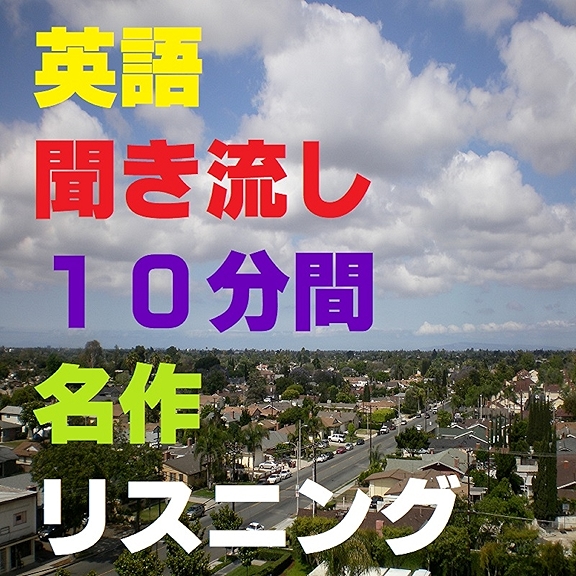
Episode Notes
Episode Summary For this This Month in the Apocalypse episode Brooke, Margaret, and Casandra all researched different topics and discuss them. Margaret talks about climate collapse, droughts, floods, wildfires, the cost of wheat, and the dangers of rising humidity for wet bulb temperatures. Casandra talks about Monkey Pox, rises in other viral and vector borne illness, and discovers why rain might actually be a bad thing for your food. Brooke talks about student loan forgiveness and things you, brave listener, might not be aware you are forgiven for. Everyone attempts to get us sponsored by 'Big' Rain Barrel. If you're out there 'Big' Rain Barrel. Please sponsor us.
Host Info Casandra can be found on Twitter @hey_casandra. Margaret can be found on twitter @magpiekilljoy or instagram at @margaretkilljoy. Brooke is just great and can be found at Strangers helping up keep our finances intact and on Twitter @ogemakweBrooke
Publisher Info This show is published by Strangers in A Tangled Wilderness. We can be found at www.tangledwilderness.org, or on Twitter @TangledWild and Instagram @Tangled_Wilderness. You can support the show on Patreon at www.patreon.com/strangersinatangledwilderness.
Next Episode Come out Friday, September 23rd, and every two weeks there after. Might be about thru-hiking, Parenting, or Archiving.
Transript
An easier to read version is available on our website TangledWilderness.org.
Margaret 00:16 Hello, and welcome to Live Like The World Is Dying, your podcasts for what feels like the end times. I'm one of your hosts, Margaret killjoy. I have Brooke and Casandra with me as well as cohosts today, because today, you will be very excited to know that the world's still ending...that we are doing our second monthly This Month in the Apocalypse and we're going to be talking about basically the last month and the I guess that's in the name. Okay. So, Brooke, Casandra, do you want to introduce yourselves? Possibly with Brooke going first.
Casandra 00:52 Your name was first.
Brooke 00:53 Yeah. Okay, alphabetically. Hi, everybody, it's Brooke Jackson again, coming to you live? Oh, wait, no, this will be recorded by the time you hear it. From the sunny lands of the Willamette Valley in Oregon.
Casandra Johns 01:11 We're all in the Willamette Valley right now.
Margaret 01:14 It's true.
Casandra 01:15 It's true. This is Casandra. That's me.
Margaret 01:19 Okay, and so this will be a very short episode, because actually, nothing bad has happened in the world, certainly not nything that feels end times ish, nothing out of the ordinary. I'm under the impression we have reversed most of the major...I mean, I think Biden passed a bill. So, I'm pretty sure climate change is over. And COVID is over. I learned that just the other day walking into a place where I thought everyone would be wearing masks, but it's over. So that's cool. Or, alternatively, let's talk about how China's in the worst heatwave in human history...in recorded history. We're gonna cut it up into segments. And I'm gonna go first with my segment.
Casandra Johns 02:06 Do we need to say "Du duh duh duhh, Channel Zero? As part of the intro?
Brooke 02:13 Do a Jingle?
Margaret 02:16 Yes. Okay. You want to do it?
Brooke 02:20 She just did.
Casandra 02:21 Oh, yeah, I did. Duh duh duh duh!
Margaret 03:19 Okay, and we're back. Okay, so, China...70 Day heatwave as of several days ago, now. And by the time you all are hearing this, I believe we're recording this about five days before this episode comes out. So, who knows what will have happened? There has been a lot of heat waves and floods all over the world this summer. And so China's in the middle of a 70 day heatwave. The drought has reduced hydroelectric output, which huge areas were reliant on the electricity because the water levels are so far down. And of course the electricity is what powers the AC. So no air conditioning is really fun as things get really hot. AC has been turned off in a lot of office buildings. It's cut power to tons of industry, including a bunch of car manufacturers where I'm a little bit like "Eh, whatever. Cars are bad." I mean, I drive cars so I'm kind of an asshole and hypocrite. Anyway. But also solar panel output and EV battery plants and like lots of stuff that's like being pitched as the alternative to things...y'all can feel free to cut me off too as I talk about these things. I'm just like going through my notes. And I don't know, it's breaking records all over the place by like four degrees in a lot of places. It's four degrees Fahrenheit.
Brooke 04:44 What is heatwave in this context? Like are they having like, you know, 115 degree temperatures, are they just?
Margaret 04:53 I mean, so. I mean, I believe in localized places. It's getting like crazy hot but what's interesting about this is that it's it's more the length of it and the abnormality to its usual that is, like, it's a lot of this stuff is like 106 degrees Fahrenheit and things like that. You know, things that are very not nice, but are...well, human survivable. Although we should probably at some point talk about wet bulb temperatures and how dry places are survivable at substantially higher temperatures than humid places. But yeah, so it's it's, it's an it's an abnormality causing problems as far as I understand, rather than like, just specifically, if you step outside, you will be scorched by the heatray that is the sun. It's affecting over a billion people, which is a lot of people. The area of the heatwave is 530,000 square miles, which for context is Texas, Colorado and California combined.
Casandra Johns 05:57 Does that overlap with the area...like, isn't there like a massive wildfire happening in China right now?
Margaret 06:04 I think you know, more about the wildfires than I do.
Casandra Johns 06:07 I don't know what region it was in.
Margaret 06:09 Okay.
Casandra 06:09 I guess I'm curious. Of course, they're related because everything climate-y is related, ultimately.
Margaret 06:16 Yeah.
Casandra 06:19 Yeah, I'm curious how closely they're tied together. But, if you don't know, and I don't know, that's fine. Because there's also a massive wildfire. And that sucks.
Margaret 06:27 Yeah. There's a massive wildfire.
Brooke 06:31 Is that a continuous area, Margaret? That five? Whatever, something miles?
Margaret 06:37 You all are exceeding my level of research that I did, because I did research about the entire world. So I don't know.
Brooke 06:44 Okay, fair.
Casandra 06:45 Oh, yeah. You have more. This is just like heat waves everywhere. Okay.
Margaret 06:48 Yeah. Okay. And also joining us today on playing the squeaky toy in the background is Rintrah, the best dog in the world.
Brooke 06:59 Can confirm.
Margaret 07:00 The best dog in the world. No complaints? Okay. Yeah, I, you know, there's a lot more I don't know about this, right? But this was one that I haven't even seen really cropping up much in the media at all. And actually, one of the things that's sort of interesting and terrible and telling is that a lot of the information that I've been able to find about climate change disasters comes from the business media, like, a lot of this is about how it will affect stock prices, how it will affect, you know...300 Mines are shut down right now in China, or as of you know, two days ago when I did most of the research for this recording. And so it talks more about the 300 mines that have been shut down instead of the 119,000 people who have been evacuated from their homes. And it's just, it's a real problem. There's a lot of photos of like, low reservoirs that are like 20 meters below what they're supposed to be and things like that. And, of course, to tie everything into everything else, you know, things that happen in one place don't only effect that region. The drought is fucking up their harvest, and fertilizer for export has been affected, which will probably fuck up the world's food supply, which was otherwise very stable. So, I don't think that's gonna be a problem.
Casandra Johns 08:16 The world's been chaos, but at least we know, food is cheap and available.
Margaret 08:20 And will stay that way.
Margaret 08:22 Okay, so then the one that I'm finally starting to see more get talked about in the media, thankfully, although it's annoying, because it's only been talked about because now there's like dramatic photos. But whatever. I mean, I'm not blaming people for not paying attention to everything that's happening in the world. Pakistan is having flooding, like just absolutely massive flooding. I've read reports saying that there's a half a million people living in refugee camps. It's taken at least 1000 lives, it's fucking up food production. Over a million homes have been destroyed. A third of the country is underwater. Have y'all seen the satellite image photos?
Casandra 08:22 Yep
Casandra Johns 08:59 Yeah, and they're referring to it as a 'lake.' Which makes me wonder like, are they anticipating at least some portion of it to remain? Like, "And look at our new lake!"
Margaret 09:10 Yeah.
Casandra 09:12 I heard I heard someone else I heard someone referred to it as a 'small ocean.'
Margaret 09:18 Yeah.
Margaret 09:19 Yeah. And, and Pakistan is the the fifth most populous country in the world after China, India, U.S., Indonesia, I think. Yeah. And so it's like, it's a big fucking deal and a big fucking problem. And one of the other problems because capitalism solves...makes everything worse. Pakistan has taken out a $1.1 billion dollar loan from the IMF, which for anyone following at home, the IMF is a predatory lending organization called the International Monetary Fund, that actually a lot of modern leftist politics, at least in the Western world and actually a lot of the developing world kind of cut its teeth in the...during the, the turn of the millennium fighting against the IMF and the World Bank, specifically because of the stuff that they do, which is that they loan predatory. It's like a payday loan. You know, it's like a paycheck loan place, but for entire countries, they loan you $1.1 billion, and then you're going to be paying off the interest for the rest of your life as a country. And of course, a lot of what's happening right now is that developing nations as they take out these loans are therefore forced to extract more fossil fuels from their own countries, in order to pay off the interest of their loan, not even touching the principal, trapping us further and further in the cycle of what's destroying everything. So that's all really fun. Okay, then, East Africa, particularly Kenya, Somalia, and Ethiopia, are also facing prolonged drought, rising food prices. A lot of this is because of Russia's invasion of Ukraine. This is projected to leave 20 million people hungry with an estimated 3 million potential deaths if aid isn't delivered, and these three countries represent 2% of the world's population, but 70% of the extreme food insecurity. And most of...about 90% of the wheat imported by East Africa comes from Russia and Ukraine, which are of course, having some issues right now. They're not famously friends. But you're thinking to yourself, "Well, I'm a wheat farmer in the US, and the high prices are good for me." They are not. Things are not good with domestic wheat production here in the United States, either, which, of course, affects large quantities of the world. Also, the US is a major grain exporter. And so this is things that affect the US do affect everyone else. And not just because we're the center of Empire. Drought is affecting wheat fields in Kansas, Oklahoma, and Nebraska. Kansas is estimating a 30% drop in their harvest. Oklahoma is estimating a 50% drop, in its harvest. And so even though you have these, like record high prices for wheat, farmers are expecting to lose money, because they're not able to grow enough. You look like you have a question.
Brooke 09:19 Oh wow.
Casandra Johns 12:24 And yeah, so we talked about this a little bit the other day, I think, like I'm not sure if people realize what it means when the wheat crop is devastated. You know, it's not just like, "Maybe I can't eat bread."
Brooke 12:43 There's more to it than that?
Casandra Johns 12:45 Right! I mean, the next thing I think of is like, who eats the wheat? Not just humans. You know, like, I can't eat wheat, but like, I eat beef.
Margaret 12:58 Yeah.
Casandra 12:58 And chicken.
Margaret 13:00 Yeah.
Brooke 13:00 Was does that matter, Casandra?
Casandra 13:03 Maybe they eat wheat. Just the like domino effect.
Margaret 13:07 Yeah.
Casandra 13:08 Yeah. When we talk about rising food prices and rising fuel prices, and how those are connected to like rising everything prices.
Margaret 13:15 Yeah. And book prices most famously.
Brooke 13:16 Okay, well, like, I have a solution.
Casandra 13:19 Okay, what's your solution? Is it Communism?
Brooke 13:19 Cause, we're all about solutions here. Well, you started talking about Pakistan being all flooded like the country's a giant lake. And then you said drought in the US and I'm like, "Let's just pick up some water over there and just put it over here." And then there won't be a drought or flood.
Margaret 13:36 So what's so great and I'm gonna get to in a moment is that drought and flood are entirely related. I think you knew this, and we're just setting me up to say this, but they're absolutely related. The more drought you have, the worse flooding you have, which of course, like boggles my immediate science, right? My non science brain is like, "But water is the opposite of drought," you know, and we're gonna get to them second. Okay, so also in the US, Lake Mead is drying up. It's the largest reservoir in the United States, it provides water to 25 million people. It's possible that soon it won't have enough water to feed the Hoover Dam, which provides electricity to about a million people. And the one upside of all of this drought..this is really selfish. It's kind of like interesting the stuff they keep finding in the water. They keep find...
Margaret 14:26 Yeah. They're like finding like some guys like "Oh, look a barrel," and he like pops open some barrel from the 1920s. And just like a dead guy with a bullet in his skull, and they're like, "Oh, the mafia really did just drop people off in barrels," which led me to the conclusion that apparently leaving dead bodies in large body in large bodies of water is more effective of a strategy than I've been led to believe.
Casandra 14:27 Well, they haven't they also...hasn't also revealed like Nazi...like sunken Nazi ships and shit. And then they're like the....
Casandra 14:27 Crime?
Margaret 15:01 Yeah, not in Lake Mead, though.
Casandra Johns 15:04 Right. But then..No, but I'm just saying like everywhere it's revealing interesting things like in Europe the...what are the stones called?
Margaret 15:12 The Hunger Stones.
Casandra 15:13 Hunger Stones?
Margaret 15:15 Yeah.
Casandra 15:15 So apparently, what's the context for this? Previously, in history when there were massive droughts and like rivers dwindled down to nothing, people made carvings in the stones at particular water levels with these like really epic, maybe Margaret's looking at some examples, of these really epic miserable statements about like, "Fear ye, fear ye, if the water gets this low..."
Margaret 15:40 You're dead.
Casandra 15:40 Yeah, but people are seeing those now, which is terrifying and interesting.
Margaret 15:47 Yeah. Terrified and interesting is a good way to describe the current epoch.
Brooke 15:52 Cool. That's the silverling, the mud caked lining.
Brooke 15:52 Yeah. There was. It's not happening right at this moment. But here locally, when the Detroit reservoir got real low a couple of years ago, there was a town that had been flooded when they built the dam there and it was low enough that like, remnants of this town were visible, including like an old wagon, like covered wagon base kind of wagon and other cool artifacts.
Brooke 16:27 See some history before we all die.
Margaret 16:30 Yeah, yeah, exactly.
Brooke 16:31 Great.
Margaret 16:32 So, in California, heat and drought are also combining as power usages reaches a five year high power use, because people are running more and more air conditions. I didn't quite realize exactly how...I don't I don't have a percentage in front of me...But like, air conditioning is a really, really big use of electricity. And so in California, the grid is estimated...is expected to become unstable, although that might have already happened. It was supposed to happen like this week. So that might happen by the time y'all hear this. Or maybe it didn't happen. And I'm here I am chicken littling, all day long. And, of course, Jackson, Mississippi flooding. The capital of Mississippi, which is primarily black city has left 150,000 people without drinking water. Sooo...
Brooke 17:18 I haven't heard about this at all?
Margaret 17:20 Oh, yeah. And there's some mutual aid groups on the ground. Cooperation. Jackson is a long standing organization that works to sort of build dual power and do all kinds of awesome stuff in terms of cooperative economics and things like that. And they are doing a lot of mutual aid work. I believe there's also a group and maybe this is actually not maybe they're not directly related. I'm not sure there's a group called Hillbillies Helping Hillbillies that I've at least seen talk a lot about this issue. I don't know if they do most of their work down there or if they've been more focused on the Tennessee floods.
Casandra Johns 17:54 I know Mutual Aid Disaster Relief is also doing work there.
Margaret 17:59 Yeah. So "Why does all this stuff happen, Margaret?" you might ask.
Brooke 18:07 Why does all this stuff happen, Margaret?
Margaret 18:09 Well, I am an expert named Jennifer Francis, a senior scientist at the Woodward Climate Research Center in Falmouth, Massachusetts, and my quote, that is definitely me is, "As the air and oceans warm under a thicker blanket of greenhouse gases, more water vapor evaporates into the air providing more moisture to fuel thunderstorms, hurricanes, nor'easters and monsoons." Basically, as the temperature rise of the Earth, the warmer atmosphere can hold more water vapor, every degree of...every increase of one degree Celsius can boost the capacity for holding water vapor by about 7%. So that's fun. And also as things get more humid, you're like, "Okay, well, that's cool. It's like more tropical and stuff, right?" Higher humidity is substantially more dangerous, like heat and humidity is what kills people, because of the way that our bodies thermo regulate basically, like, if you're at 100% humidity, and the temperature goes above your body temperature, you die. Not like instantly, right? But your body loses its ability to thermo regulate. And so that is the wet bulb temperature is the temperature at 100% humidity, and that can be calculated out from there. So, for example, 105 degrees Fahrenheit at 5%. humidity is not that bad. It's like 61 degrees wet bulb, right? You're not in danger, I mean, you can be in danger zone from other parts of it, you need to get in shade, right? But like, whereas 105 degrees at 95% humidity is 103 degrees wet bulb. So, and for context, you know, it's like I used to never really think about the level of humidity that I lived in until I moved to the South and I had to worry about mold and all kinds of other shit. But, much of the South, and San Francisco and also I believe much of Alaska sit at around 80 to 90% humidity, whereas the Southwest might be at around 30% humidity. So, when you hear about temperatures at different levels in different parts of the country, the humidity that they're facing, like matters in terms of how catastrophic this type of thing is likely to be. And then the "What to do about it section!" Don't worry, we're almost done with the terrible climate shit part.
Casandra Johns 20:20 I feel like earlier, you mentioned something about the relationship between flooding and drought. I was hoping you were gonna circle back to that.
Margaret 20:28 Okay. Oh, yeah. So. So basically, the...some atmosphere shit I only half understand. But, as everything gets hotter, more of the air like sits...and more of the water sits in the air and that...it just fucks everything up. So, like, the rain falls off fucked up. I, I kind of like, wrap my head around it. And then I, it unraveled, you ever, like study things that are completely outside your thing? And then you like, you get your takeaway, and then the details like dissolve? That's what happened to me while I was researching this?
Casandra Johns 21:00 No, that's I didn't realize it had I, I thought my assumption was it was going to be that, you know, you can look up videos of this where like, people put a cup of water upside down on like dry soil, you know, partially damp soil and like saturated wet soil. And the cup of water immediately, like seeps into the ground in the saturated soil, but it takes a really long time for the dry soil to absorb the water.
Margaret 21:25 Yeah.
Casandra 21:25 And so my assumption was like, "Oh, if there's a drought and the soil is bone dry, it can't absorb moisture very effectively."
Margaret 21:33 Yeah.
Casandra 21:33 Which is counterintuitive, maybe? But...then it floods.
Margaret 21:36 I think that is a big part of it. Yeah.
Casandra 21:38 Okay.
Margaret 21:39 And then also, I was even just like...go ahead.
Brooke 21:43 I was thinking about how matter can't be created or destroyed. And so the water still exist somewhere, even though it got sucked up from the dry places. And that might be why it ended up flooding in other places because the water still exists.
Margaret 21:58 Well, a lot of places it's literally the same place will have droughts and floods. I think Texas was dealing with that I think it was Dallas, was having a record drought and might still be in a record drought and then had like, really fuck off flooding. I think it was about a week or two ago. That was like destroying everything. And, you know, because if the rain patterns are just completely different than Yeah, what the ground is used to absorbing and like, and which ties into what to do about it. A lot of what to do about it needs to happen at the scale that we're not necessarily going to talk about right now. But, rainwater catchment and drought areas is super important. And, you know, I was looking it up because there's this like. I'd always been sort of told that rainwater catchment like fucks up the water system of that area, you know, because Colorado has, they have re-legalized it a little bit in 2016. But it's been illegal for a very long time to catch rainwater in Colorado because they're like, "Oh, it's so dry here. We need all the groundwater." That was what I had always got told. The real reason's that Colorado made rainwater catchment illegal have a lot more to do with...capitalism, and the way that water rights are, you're basically stealing from people in entirely different areas if you catch the rainwater at the source or whatever. And, it it can affect things,right, if you like take water that could otherwise have ended up groundwater, but you're mostly it's mostly like shit that would have run off anyway. And so rainwater catchment increasingly in a lot of places, I believe Arizona has like new laws that like require new buildings to include rainwater catchment. There's entire countries who I didn't write down the names of that require rainwater catchment in all new buildings, especially island nations, I'm under the impression and so rainwater catchment is cool. And then, Arizona you can get rebates if you install rainwater catchment. In Colorado, it is now legal again for like home level and there's like all these like rules and shit. And you're, you're only allowed to store two barrels for a total of 110 gallons and you can only do it at like, home, or whatever. I'm sure there's ways that people could imagine catching rain water without getting caught. The CDC points out that rainwater is generally not safe to drink without treatment. You can use it to water non food plants without treatment. I say this, I showered with rainwater for the past three years and don't give a shit. But, maybe I shouldn't recommend that to other people. But, also filtering rainwater is like not the biggest deal in the world. And then...
Casandra Johns 24:39 Also like, the idea of only using it on non food plants is really funny to me, because like it just rains on my plants, you know? And then I eat them.
Margaret 24:51 Yeah.
Brooke 24:52 You shouldn't let rain land of your plants.
Margaret 24:54 You shouldn't be eating food from plants. Plants comes from stores, Casandra.
Casandra Johns 24:59 Uh oh. Okay. And if they get rained on specifically then they're like poison.
Margaret 25:06 Yeah, me, okay. Like, you walk out of a food store, the main place that people get food, like McDonald's, and you have your chicken nuggets, or...
Casandra 25:14 And then they get rained on?
Margaret 25:16 You wouldn't want to eat them now, would you?
Casandra 25:18 Okay, I see what you mean.
Margaret 25:20 Yeah, no, I like that part about the like non food plants or whatever is like to me is like that's what the CDC says. The CDC has lost a lot of...I don't trust it as much as I might have used to.
Casandra 25:36 Interesting segue to...
Margaret 25:39 Yeah. Well, there is one more part though that I believe one have you added to the notes about soil remediation and dry gardening? I'm wondering if you want to talk about some of that.
Brooke 25:52 That has to be Casandra, cause it wasn't me.
Casandra Johns 25:54 Oh, I mean, that was me thinking about like, how the what I was saying before how bone dry soil...the best place to store water is in the soil. Right?
Margaret 26:04 Yeah.
Casandra 26:06 Just like the best place to store nitrogen is in the soil. But, you know, if I lived in a super dry area, and this is only so effective for like the home gardener, this like ideally would happen on a large scale. But, if I lived in a really dry area, I'd be working really hard to like improve my soil health so that it can store more water. So that things like dry gardening are possible. So I can you know, have food even in a drought.
Margaret 26:32 What is dry gardening?
Casandra Johns 26:36 Dry gardening is gardening with little to no, like, manually added water.
Margaret 26:43 Is that where you like mulch the shit out of it all to prevent evaporation?
Casandra Johns 26:46 Yeah, you can do it that way. You can also...there. There's a...well, it's on my bookshelf, so I'm not gonna mention it because I can't remember the title right now. But yeah, mulching, spacing your plants a lot farther out, making sure that your soil can store water so that if you know we live, where I live, it rains a lot in the spring. And if the plants I plant have a room, and the soil is fluffy enough that they can send the roots really deep, then in the summer, when it's dry, they can still access the water that's stored in the soil. Does that make sense?
Margaret 27:19 Cool, and then they grow chicken nuggets?
Casandra 27:22 Yep.
Margaret 27:23 Cool. Okay, so back to the clever segue that I broke about not trusting the CDC....
Casandra Johns 27:36 Yeah, yeah, I Okay. So, we realized we should probably say at least something about monkey pox. Because it's the thing that exists. My notes are titled monkey pox sucks. And...
Brooke 27:52 Correct.
Casandra Johns 27:53 Correct. Yeah. And I realized in researching this that I knew very little, I think I was just like, "We live in a time where there will be epidemic after epidemic," and I'm, you know, mentally overloaded on this topic. And had a lot of assumptions that were wrong. But, one interesting thing I found out is that the CDC is saying it's not transmitted....It's not airborne. Which, you know, they've kind of gone back and forth about whether masks are going to help...masks. I can't enunciate....whether masks are going to help prevent the spread.
Brooke 28:37 If the mask prevents you from licking someone's open wounds, then then I say that would be helpful. Put your mask on.
Casandra Johns 28:44 But, then there's there are other recommendations around like, avoiding close face to face contact with people. So that's all. I think I'm just affirming that I am also skeptical of CDC guidelines at this point, which is a bummer.
Margaret 28:59 Yeah.
Casandra 29:01 Anyway, do you want to hear all about monkeypox?
Margaret 29:04 Yeah. Yay.
Casandra 29:06 Yay.
Margaret 29:06 What a fun show we make.
Brooke 29:10 That's like a game, right? It's a children's game that you play. It's fun. Spread all over? Isn't it great?
Casandra 29:18 No.
Margaret 29:19 It's one of those games with a 1-3% death.... Okay, please continue.
Brooke 29:24 That's pretty low. It's fine.
Casandra Johns 29:26 Oh, my God, what a world that we live in. So apparently was discovered in 1958 in laboratory monkeys. So, you know, you can insert something here about blaming capitalism for everything. Because maybe it wouldn't have been a thing if monkeys were not in laboratories? Anyway, it's a cousin of smallpox in the first human case was recorded in 1970. When I first heard about monkey pox in May or whatever I was like, "Oh, cool and new disease." It's not new. It's been around for decades. So, it's really interesting that like, we don't have a vaccine that can quickly be rolled out. Do you want to guess why that is?
Margaret 30:14 Is it Capitalsim?
Brooke 30:14 I guess 'racism.'
Casandra 30:15 Racism. Brooke wins with 'racism.'
Brooke 30:23 Yay?
Casandra 30:26 Yeah, so it was that to be uncommon in humans, but cases started increasing around 1980. And most of the cases have been documented in central and western Africa. That correct? In Africa.
Margaret 30:41 Yeah, you said Nigeria is like one of the main spots of it?
Casandra 30:45 For this outbreak.
Margaret 30:46 Okay.
Casandra 30:48 Yeah. So, and they think that one of the reasons....so there have been multiple outbreaks since it was first recorded in humans in 1970, which I didn't realize, because we don't hear about them, because mostly they've taken place in Africa. Which is just depressing. And I'll come back around to that in a minute. But, they think that that the increase in cases might be connected to the fact that it is related to smallpox. The smallpox vaccine, they think gives like, 85% that it is like, 85% effective against monkey pox. But most people don't get the smallpox vaccine anymore.
Brooke 31:27 Yeah.
Casandra 31:28 And I think that's related to the increase in monkey pox cases.
Margaret 31:33 People don't get the smallpox vaccine anymore, because smallpox kind of went away because of vaccines?
Casandra 31:40 Yeah,
Brooke 31:41 No, it just stop being trendy. People were like, "That is not cool anymore. I'm not gonna take that one."
Casandra Johns 31:48 Yeah, yeah. Which then is like, there's a whole tangent in here about who and how they decide a disease has been 'eradicated.' I'm doing air quotes that you can't see has been, 'eradicated.' Especially when something like monkey pox is trance was initially transmitted from animals to humans. And so, yeah, I don't know, is smallpox eradicated? I don't know. I'm not an epidemiologist. But I'm curious. So, let's see. Okay, so the current outbreak grew from one case in Massachusetts in the US, I'm talking about the US now, May 17. And at this point, you know, however many days it's been since May, there are almost 20,000 cases in the US, which is a lot of cases.
Brooke 32:40 I mean, it sounds like a big number. But, also I know, there's a lot of people in the US, but also, I don't know how much cases of other things that we know about are common. So I don't have any frame of reference.
Margaret 32:51 Yeah same.
Casandra 32:53 Yeah.
Brooke 32:54 Well, it's way smaller than Covid.
Casandra Johns 32:57 Right. It is way smaller than Covid. But, you know, and it's, it's sort of like Covid, you're probably not going to die from it. But then there's the asterisk, 'unless you're immunocompromised already,' you know. So like, who are we? Who are we willing to throw under the bus for this?
Brooke 33:13 So just Casandra.
Casandra 33:13 Yeah, just me. Yeah. But then there's also public health experts are apparently warning that the virus is on the verge of becoming permanently entrenched here.
Margaret 33:24 Cool.
Casandra 33:25 So maybe 20,000 isn't, you know, a big chunk of the population, but in terms of like, a virus, it's bad news, because we don't really want it to become entrenched here, right?
Brooke 33:38 Yeah, viruses, bad.
Casandra 33:41 Virus equals bad. Okay. Okay, so, so there's been a lot of criticism about Biden's administration and their sluggish response to the outbreak. I read a really interesting report. I think WaPo [Washington Post] was the first place to report on this, but they said that, on August 4, US Health and Human Services officials plan to stretch the country's limited supply, or they announced, that they plan to stretch the country's limited supply of vaccines by splitting doses to cover five times as many people. This is after saying that they had plenty of doses. So, already sketchy. Yeah, cool, cool. And then the chief executive of Bavarian Nordic who's the vaccine manufacturer responded by accusing the Biden admin of breaching contract by planning to use them in this like inappropriate way by splitting the doses and then apparently threatened to cancel all future vaccine orders so that....Yeah, I'm not sure how that was resolved.
Brooke 34:45 Capitalism. The other 'ism' now at play.
Margaret 34:50 I was right. I was late.
Casandra Johns 34:57 So the big concern for me in researching this was how it spreads, because I have a child who's about to go back to public school, so apparently animal to human transmission, it's spread by direct contact with blood, bodily fluids or cutaneous or mucosal lesions of infected animals. And then human to human transmission is close contact with respiratory secretions, which to me says airborne, right, right? Is that not what that means? Anyway, respiratory secretions, skin lesions of an infected person, or recently contaminated objects. So things like bedding, clothing, stuff like that. Um, but the CDC says it's not airborne. So, take that, as you will. I don't know. How are you gonna take that, Brooke?
Brooke 35:41 Right. Well, I mean, respiratory secretions that does sound more significant than just like, you know, air droplets, like we talked about with covid, like, more moist, kind of things coming out of you, like sneezes and coughs and stuff that actually sprays more liquid matter?
Casandra 36:07 So, use your imagination with that.
Margaret 36:08 We could just go through and describe every act that could...
Casandra 36:10 Don't spit in people's mouths.
Brooke 36:14 Damn it, there goes half of my kink play.
Margaret 36:18 I mean, it does seem like it's less contagious than like, because like, okay, right, like, because they said originally COVID wasn't airborne. And they weren't always wrong about




















